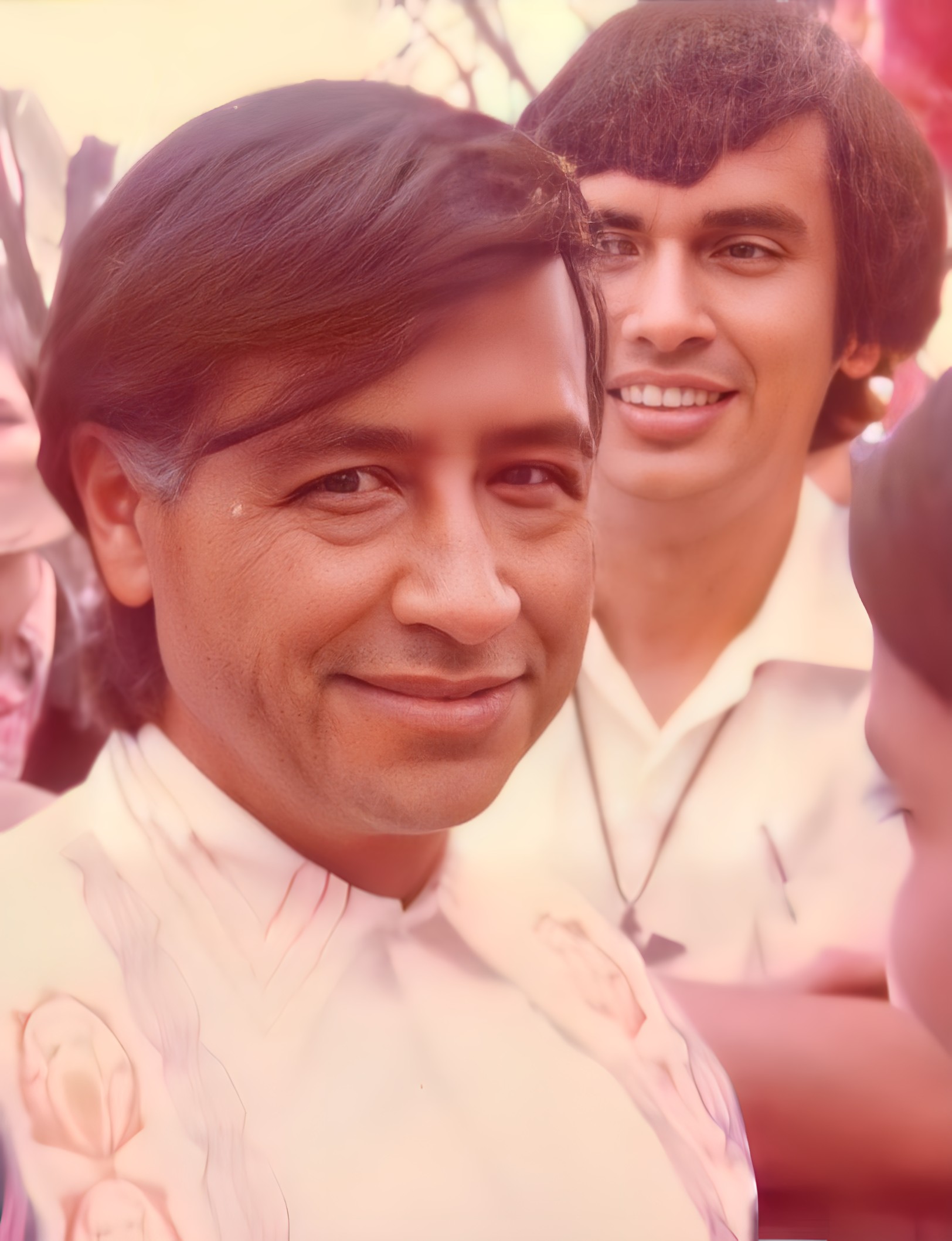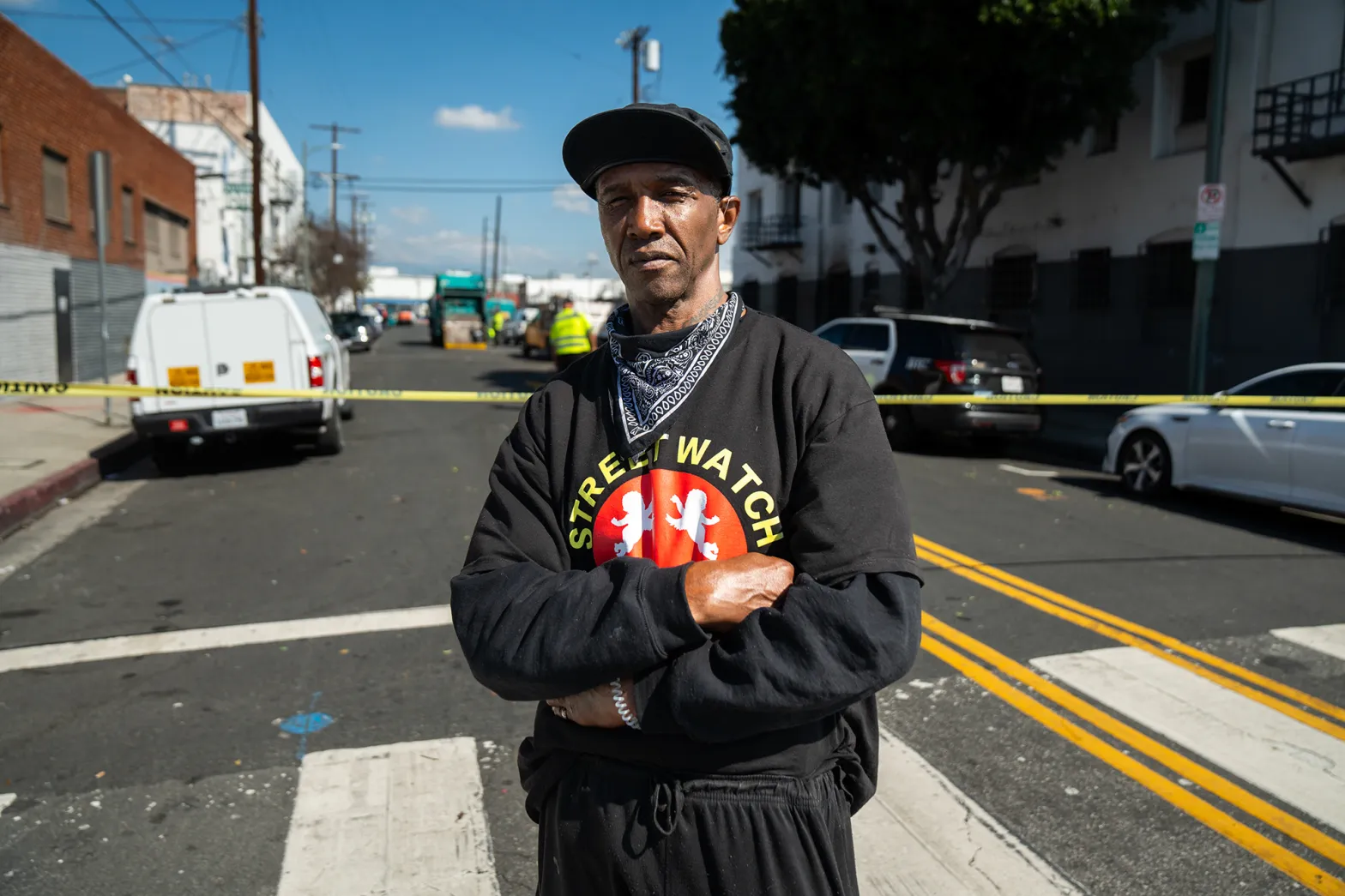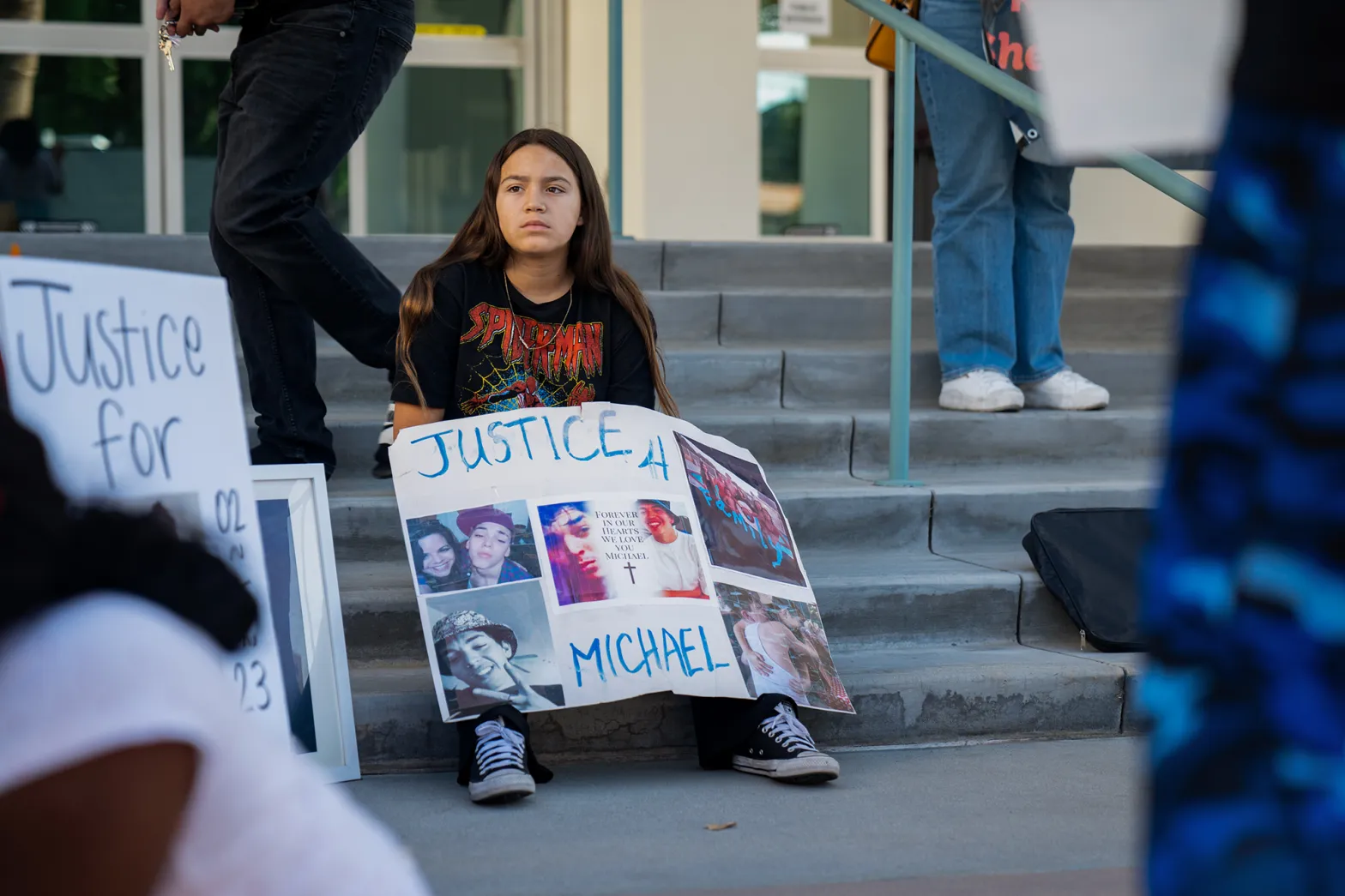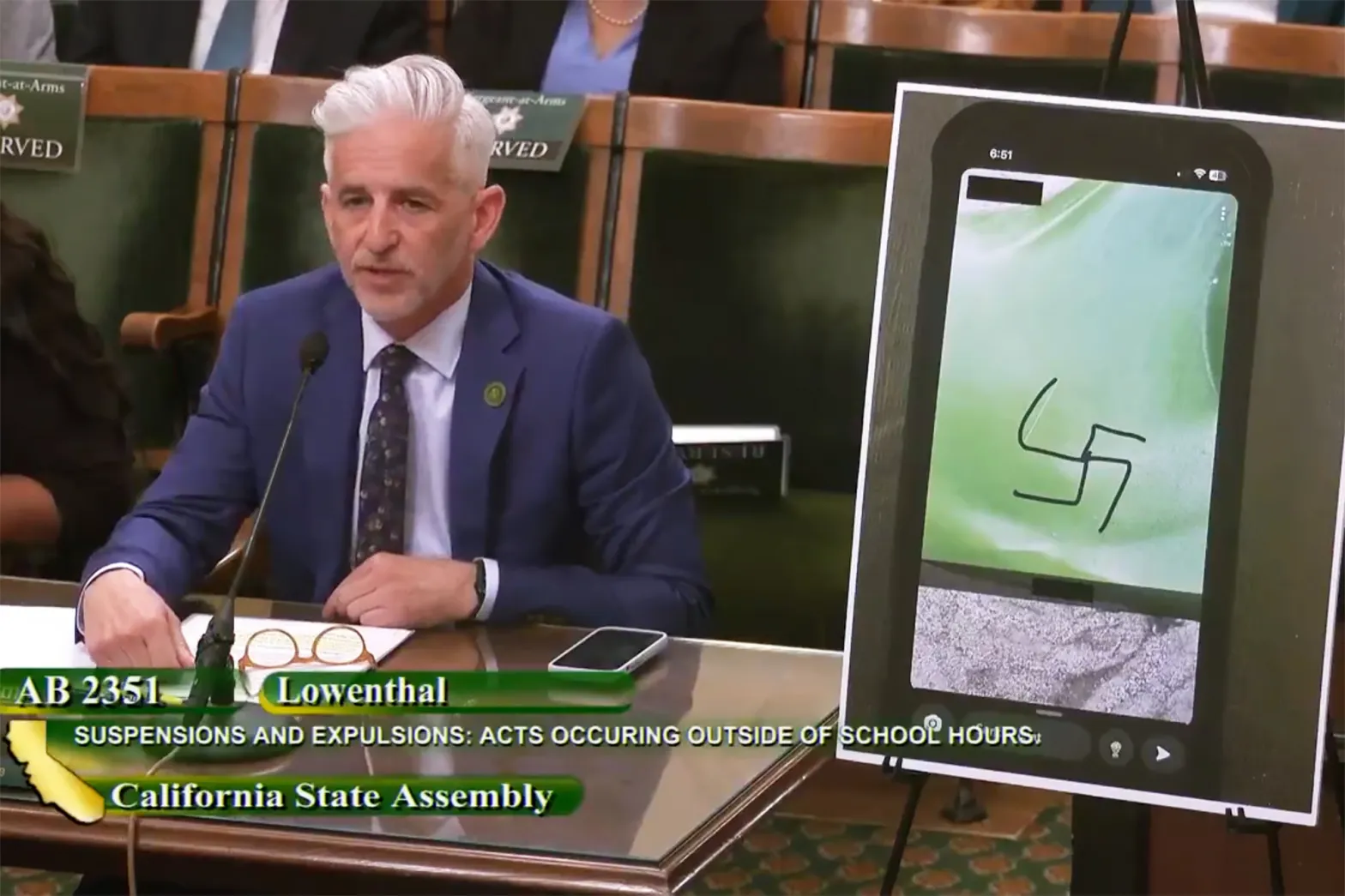Cesar Chavez in Excelsus
‘I will forgive them, but I will also keep fighting them with non-violence, with justice and with human dignity — and you must do the same,’ said Chavez. ‘For the moment we stoop to their tactics, the moment we take the law into our own hands, that will be the moment that we become just like they are. And what will we have changed?’
Cesar Chavez wept and when he finally looked up from the limp body of the murdered farm worker he was mourning, time seemed to stop.
Chavez’s red-brimmed eyes glowered with both pain and anger, compassion and outrage. His leathery face glistened with windblown sand crystallized by tears dried still in the afternoon sun. His parched lips quivered as he tried to speak but couldn’t.
Time had stopped.
The unarmed farm worker had been shot to death by a strike-breaker hired by an Imperial Valley grower — a grower who years later would go to prison for income tax evasion.
Farm workers and reporters who crowded around Chavez all waited for what Cesar would say in the wake of calls from his own rank and file for eye-for-eye, tooth-for-tooth revenge.
But time had stopped, and it seemed an eternity before Chavez bent over again and kissed the dead man’s forehead.
“If I could,” Chavez said as he stood up and collected himself, “I would also kiss the forehead of the man who killed him and of the man who hired him. And I would want you to do the same out of forgiveness.
“I will forgive them, but I will also keep fighting them with non-violence, with justice and with human dignity — and you must do the same.
“For the moment we stoop to their tactics, the moment we take the law into our own hands, that will be the moment that we become just like they are.
“And what will we have changed?”
•••
It was January 1979 in the dusty, sweltering heat of the Imperial Valley just north of the U.S.-Mexican border, and Chavez — as he had done many times before and after — managed to somehow not only defuse a potentially violent farm labor strike but to also turn human tragedy into triumph.
That particular, though elusive quality — to lift the human spirit out of seemingly hopeless despair — that Chavez shared with a few other chosen men in history may be what set Cesar apart from other charismatic figures of his time.
It is also what comes to mind most vividly about Chavez upon reflection as we approach the anniversary of his birth.
It doesn’t seem that long ago, but it had not been almost 35 years since Cesar Chavez made his unlikely ascension into the American consciousness. He was, after all, a poor, uneducated laborer — a peasant, really — who rose to the princely heights of worldly fame and respect by promoting the basic, if unappreciated, values of peace, human justice and dignity.
Mexican American activists and leaders, of course, claimed Chavez as their own. He was indeed the country’s most prominent Mexican American figure, though ironically many in the movement had both privately and publicly been critical of Chavez for not being a more activist or militant Chicano leader.
In the 1970s, Chicano leaders even went so far as to humiliate Chavez by refusing to let him address a national Raza Unida political convention in El Paso.
In the 1980s, several prominent Mexican American leaders bitterly broke off their ties with Chavez over mounting differences on race relations— about which Chavez was not the Chicano nationalist many activists wanted him to be — and on the Democratic party — which Chavez blindly supported much to the disappointment of Chicanos disenchanted with the party.
For, much to the chagrin of Mexican American activists, Cesar Chavez eventually transcended racial borders and ethnic divisions and to become a symbol for more than just Chicano pride and purpose.
Cesar Chavez, in excelsus, became a peacemaker.
In retrospect, to say that he had become only a Mexican American leader was like limiting Ghandi and Martin Luther King Jr. to the role of provincial leadership and influence.
The importance may not have been lost on President Bill Clinton, who on Chavez’s passing at the age of 66 in April of 1993 said:
“The labor movement and all Americans have lost a great leader with the death of Cesar Chavez.”
For just as he would have kissed and forgiven the goon who killed his farm worker follower, Chavez sought to heal the divisions that had polarized America and particularly Chicanos and blacks as the racial tensions of Los Angeles had shown to exist deeply and violently.
This did not go down well in the ethnic-paranoid Third World, where Mexican American activists and leaders have long jealously sought to overtake Blacks in the landscape of the public rung: political representation, agency and commission appointments, government funding and jobs.
Chavez would have none of it, and though he proudly carried on his heritageand language, he didn’t wear his Mexican American ethnicity on his shirtsleeves.
When he broke the first of many fasts in 1968, it was with the late Senator Robert F. Kennedy at his side and not with any of the ambitious Mexican American politicos, who then and later sought to exploit Chavez.
And perhaps it was significant, too, that when the Los Angeles Times memorialized him, the photographs it used of Chavez’s most historic moments were of Chavez with Kennedy, Chavez with the Rev. Jesse Jackson, Chavez with Coretta King and Chavez with Ethel Kennedy.
Even when he died non-violently in his sleep, there seemed to be a curious wish among some Mexican American activists that his death be more.
In East Los Angeles, a rumor spread that day that Chavez had been assassinated. Chavez had actually died peacefully in his sleep in Yuma, Ariz., far away from the California vineyards and fields where he had organized farm workers into a labor, civil rights and cultural phenomenon.
•••
And far away from the Imperial Valley where, when he quelled his followers ‘emotions and prevented the possible widespread bloodshed of a labor riot, it became obvious that Chavez’s greatest gift may have been his faith and his ability to inspire it among his followers.
At the time, I had been covering Cesar Chavez on and off for almost a dozen years. I had reported on his labor organizing struggle for newspapers in Texas and Washington and spent numerous hours interviewing him for a book on the Chicano movement in which I profiled him.
Even when I visited at his home, I had maintained a healthy newsman’s detachment and suspicion, though with some mixed emotions that he had quickly perceived and jumped on.
“You’re a doubter, but I can tell you want to be a believer,” Chavez finally said to me after an interview. “You need to take some time off, decide which one you’re going to be, then be that.”
Chavez, in the tradition of Ghandi and King, may have been the last of the peacemakers at a troublesome period of American history when many activists wanted him to be much more.
Perhaps, though, his legacy will also show that he made believers out of all of us.
TONY CASTRO, the former award-winning Los Angeles columnist and author of “Chicano Power” (E.P. Dutton, 1974), is a writer-at-large with Wave Newspapers. “Chicano Power” will be republished in a 50th anniversary edition in 2024. He can be reached at tony@tonycastro.com. Website: https//tonycastro.com












